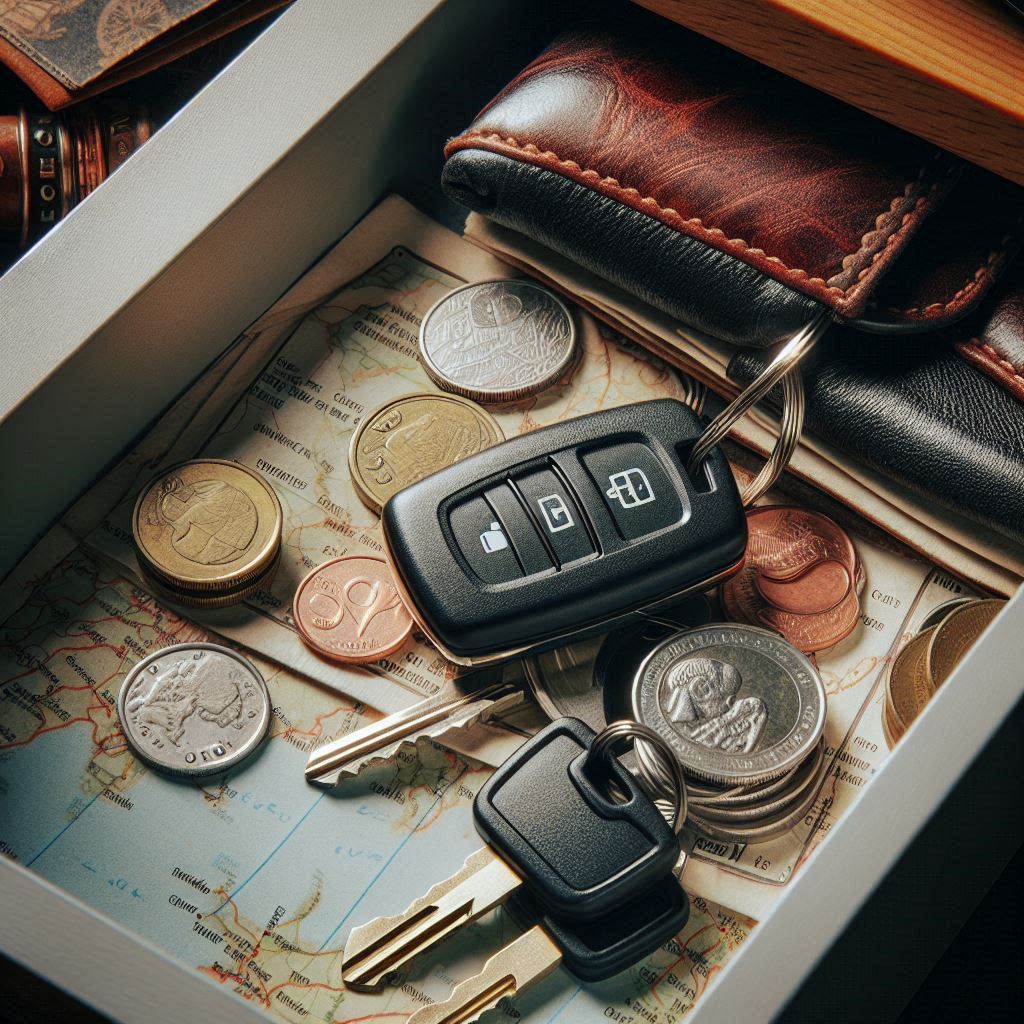It's Not Too Late to Travel Solo After Retirement — but Don't Make These 14 Mistakes
-https://www.travelandleisure.com/trip-ideas/senior-travel/senior-travel-mistakes-to-avoid By Skye Sherman
“Sometimes as you’re getting older, you might start feeling less capable. You go out there and you navigate the world by yourself? Yeah, you come back feeling pretty darn strong.”
Thinking You’re Younger Than You Are
Don’t overestimate your abilities — or underestimate your age. “It’s pretty common,” Waugh laughs. “When you hit about 40 or 50, you really think you’re about 10, 20 years younger than you actually are. It’s really important that you take an assessment and know your physical abilities so that you don’t get yourself into an awkward situation. Know how far you can walk, how far you can ride, how far you can hike, what stairs are like for you, what it’s like on uneven surfaces — just take account of this, because it can really affect your enjoyment of the trip once you go.”
Choosing the Wrong Destination for Your Situation
Plan trips according to what’s best for you at this stage in life. “You really need to choose the trip, the tour, or the destination that’s right for you — and that, again, is going to be affected by your abilities,” Waugh says. “Maybe you’ve been a great hiker in the past, but it’s just not in the cards, but you also love cooking, so you go to Italy and take a cooking course. Sometimes you have to adapt according to the times within your life.”
Flying Solo When a Group Trip Would Be Better
Based on your desired destination and activities, determine whether a visit is best tackled solo or within the embrace of a group tour. “It’s really important to assess the destination and how challenging it might be and whether it might be best on a tour,” Waugh says. “Or you might be looking at yourself and saying, ‘You know what, I’m now at the stage where I need more backup so that if something goes wrong, I’ve got a tour guide to turn to.’ Making that decision as to the nature of your trip — independent or with a tour or on a river cruise or something of that nature — I think is really an important thing to do.”
Not Buying Travel Insurance
In many circles, travel insurance is up for debate, but Waugh won’t travel without it.
“I have bought travel insurance my entire life — and I’ve won the game on some years,” she says. “You have to have travel insurance. It’s so important. It gets much more expensive as you get older, so that can be a challenge, but more things can go wrong, which is why it gets more expensive.” She recommends simply counting travel insurance as part of the cost of your trip.
How do you choose which travel insurance package or level of coverage is right for you? “Everyone has their own level of risk, even as a senior,” Waugh says. “If you don’t care whether you lose your luggage, then don’t get it covered. Have a look at it in terms of what you actually want to buy.”
Assuming You Won’t Meet Other Seniors Traveling Solo for the First Time

Trying something new is often intimidating because you fear that others are seasoned experts who have been at it for years. But when it comes to travel, you’re not alone; many seniors are also traveling solo for the first time in their lives.
According to Waugh, “Very often, [seniors are] traveling by themselves for the first time, and this might be because they are now a widow or widower. Or divorced — a lot of people divorce in their 50s and early 60s, once the kids are gone. Or it might be that one party does not want to travel; maybe they traveled for work their entire life and they’ve had it with airports, and the other is just really keen on getting out and exploring the world. There are many, many reasons that people will come to solo travel later in life.”
To seniors considering traveling alone for the first time and finding the prospect daunting, Waugh recommends a group setting. “A lot of seniors go on tours or escorted travel, and that takes the worry out of it for you,” she says. “You know you’re going to be sitting with someone to have dinner; you know someone’s going to navigate the whole destination. So that’s a really valid and useful way to travel for seniors.”
She estimates that probably 75 percent of solo-traveling seniors opt for a tour, but there are certainly some who choose to explore completely independently. “I think that as long as you’re fit and healthy and adventurous, then it works well,” Waugh says. “Those who go independently, it’s very interesting to see the response of the world to them. It’s very welcoming.”
Not Starting Small
Another surefire way to get comfortable traveling on your own as a senior is to start small and stay local. “Go to a city not far from you, where it’s really familiar,” Waugh advises.
If you have a lot of travel experience already and it’s not the travel that’s baffling you but the being alone, then choose a place that’s exotic yet familiar. “If you want to be more adventurous than just going down the road, so to speak, then go to the UK or go across the country or go somewhere where English is spoken and it’s pretty familiar how the world works,” Waugh recommends. “You get your feet wet that way.”
:max_bytes(150000):strip_icc():format(webp)/older-female-solo-traveler-WMNMISTAKES0720-97491bfde1b44e0aa79be4ea1b3b3c69.jpg)
GETTY IMAGES
Overlooking the Single Supplement
Traveling solo can become surprisingly pricey when you run into the dreaded single supplement. Because most hotel rooms and cruise ship cabins are built to accommodate two occupants, solo travelers often encounter an extra charge that exists to compensate for the lack of full capacity.
“The single supplement, historically, has been up to 100 percent, and it still is in some places,” Waugh warns. Solo Traveler World advertises tour companies with no single supplement or a low single supplement. “We have a 20 percent threshold, otherwise they can’t advertise on our page,” Waugh says. “I think it’s the only resource online for solo travelers to find trips that are truly designed for solo travelers.”
Not Sorting Out Your Communication Strategy Before You Depart
Don’t leave home without knowing how you’ll contact home in case of emergency.
“What can happen, if you’re under stress and the things you have to do to communicate with home or with your travel agent or whomever is not clear to you — if you’re using the phone and you’ve just bought the phone, that kind of thing — the stress can make it impossible, almost,” Waugh says. “So make sure that you’re leaving really confident about how you’re communicating with home.”
Not Using Technology to Make Travel Easier
Don’t bog yourself down with devices you won’t use, but be open to learning and utilizing the sundry travel tools available in the modern age. Traveling with technology is not necessary, though it can be helpful, Waugh says.
“Stick with what you’re comfortable with. If you’re going to a country that’s not a language you speak, then definitely get comfortable with a translation app.” She also recommends using Google Street View to take a look around the area before booking accommodations.
Overpacking
Overpacking makes travel both cumbersome and expensive. “I recommend one carry-on bag and I really urge people to just go with that because you are so much more mobile that way,” Waugh says. She suggests choosing two base colors for your wardrobe and accessorizing with non-flashy, cheap jewelry and scarves.
“I’ve gone on business trips that have hiking side trips and it’s all in one carry-on; I’ve been out for a month with one carry-on,” Waugh says. “It can always be done.”
Overall, keep your bags light by keeping your packing list simple and versatile.
Scheduling Your Arrival After Nightfall
As a senior, you should plan to arrive at your destination in the daytime — the world does not look as safe and easy to navigate in the dark, Waugh warns.
“I went to Havana one time and arrived after dark,” she said. “I was dropped off at the edge of Old Havana, where there were no cars, and I had to drag my roller bag over cobblestones in what was virtually the dark, ’cause there was not a lot of street lighting, to find my hotel, which had the doors closed. And you can imagine: my bag is making these rackety sounds over the cobblestones; it’s echoing on the buildings and I’m feeling incredibly vulnerable. So that was when I learned: make sure you arrive during daylight. Life will be easier.”
Ignoring Your Instincts and Neglecting to Be Cautious
Part of orienting yourself with your surroundings — beyond reading maps and putting together a geographically sound itinerary — is trusting your gut. “If something feels uncomfortable, get out of there,” Waugh says. “You don’t want to be too polite. If someone’s making you uncomfortable, be noisy about it.”
In that vein, Waugh’s No. 1 rule as a senior traveling solo is to remain in public with the people she meets. “To go into a private space, whether it’s a taxi or you’re invited to someone’s home or something of this nature — don’t do that,” she advises. “It’s difficult to evaluate someone outside of your own culture and when you’re on holidays, you’re all bright-eyed and excited. If you stay in a public space with someone that you find interesting or fun or whatever, it’s going to be safer, so always stay in the public sphere.”
Assuming All of Travel Is How It Used to Be
As a senior, you may have decades of travel experience, but don’t let that cloud your awareness of the many ways travel has progressed — and become more accessible than ever.
For example: because hostels used to be called “youth hostels,” many seniors write them off or overlook the opportunity they present for an affordable stay in an approachable setting. But hostels aren’t just for young people anymore (though being young at heart is probably a plus). “You get families at hostels; you get seniors at hostels — not as many, but there’s usually one other senior at a hostel, and of course they’re such a wonderful way to stay somewhere and be in a social environment,” Waugh says.
Another positive change is the increased ease of communication. “If you were traveling in the '70s — or '80s, even — your only option in terms of communication was basically postcard or an incredibly expensive phone call on a phone that made no sense because every country had its own phone,” Waugh says.
With a smart phone in your pocket — even if you barely use it — you can be connected at a moment’s notice, should you so desire. Gone are the days of picking up your mail at the American Express office.
Underestimating How Rewarding Solo Travel Can Be
The solo travel trend of recent years has led to its benefits being recognized widely — but the gifts that solo travel offers to seniors differ from those of any other demographic. While traveling alone might offer a young person the opportunity to discover him- or herself, for seniors, the experience is gratifying in other ways.
For Waugh, it’s about the people you meet on the road. “Because you’re alone, people step into the space; people step in and they’ll talk to you,” she says. “Whether it’s other travelers or whether it’s locals, it’s really a wonderful experience.”
However, she adds, many seniors extol the main virtue of solo travel as the chance to do what you want, when you want, however you want to do it. When you’re traveling on your own, there’s no attending to other people’s needs or accommodating their schedules. “If they’re a 6:00 riser, if they’re a 10:30 riser — whatever, it’s all up to them,” Waugh remarks. “They don’t have to go to museums if they hate museums. They can go to museums all day if they love museums. It’s all up to them.”
Plus, she says, the experience is incredibly empowering. “Sometimes as you’re getting older, you might start feeling less capable. You go out there and you navigate the world by yourself? Yeah, you come back feeling pretty darn strong.”
Hear more from Janice Waugh about the beauty in solo travel on Let’s Go Together, available on Apple Podcasts, Spotify, Megaphone, and Stitcher.
Skye Sherman
Skye Sherman is a freelance travel writer based in West Palm Beach, Florida, a (rare) fourth-generation Floridian. After completing an internship at Palm Beach Illustrated and graduating from college in 2016, she dove into travel writing, testing the waters by growing her own blog and Instagram. Upon embarking on a six-month trip around the world as a digital nomad — and eventually diving into freelance writing full-time — she began writing for major publications, soon seeing her byline in USA Today, Atlas Obscura, Matador Network, The Epoch Times, and various other print and digital publications.
Skye began writing for Travel + Leisure in 2018 (her first assignment was to break the news about Florida's Brightline train between Miami and Orlando and was due back the same day). She has written for a wide variety of print and digital publications, penning everything from cover stories on up-and-coming actresses to travelogues of cross-country train rides to the Palm Beaches' 30 Under 30 to breaking news. Before pursuing travel writing, she worked as the influencer marketing manager at Monq, a wellness company. She has also edited a handful of independently published books. Aside from traveling, she's also a private pilot, scuba diver, and self-proclaimed bookworm. She has visited 45 countries so far and hopes to visit all 195 during her lifetime. When she's not writing, she's probably watching a documentary or laying in the sunshine reading a thriller.
• 10+ years of experience working as an editor
• 5+ years of experience working as a freelance writer covering travel and lifestyle topics
• 5+ years of experience in SEO and content strategy
• Former contributing editor at Palm Beach Illustrated
• Received a bachelor’s degree in English from Palm Beach Atlantic University, with a minor in psychology





